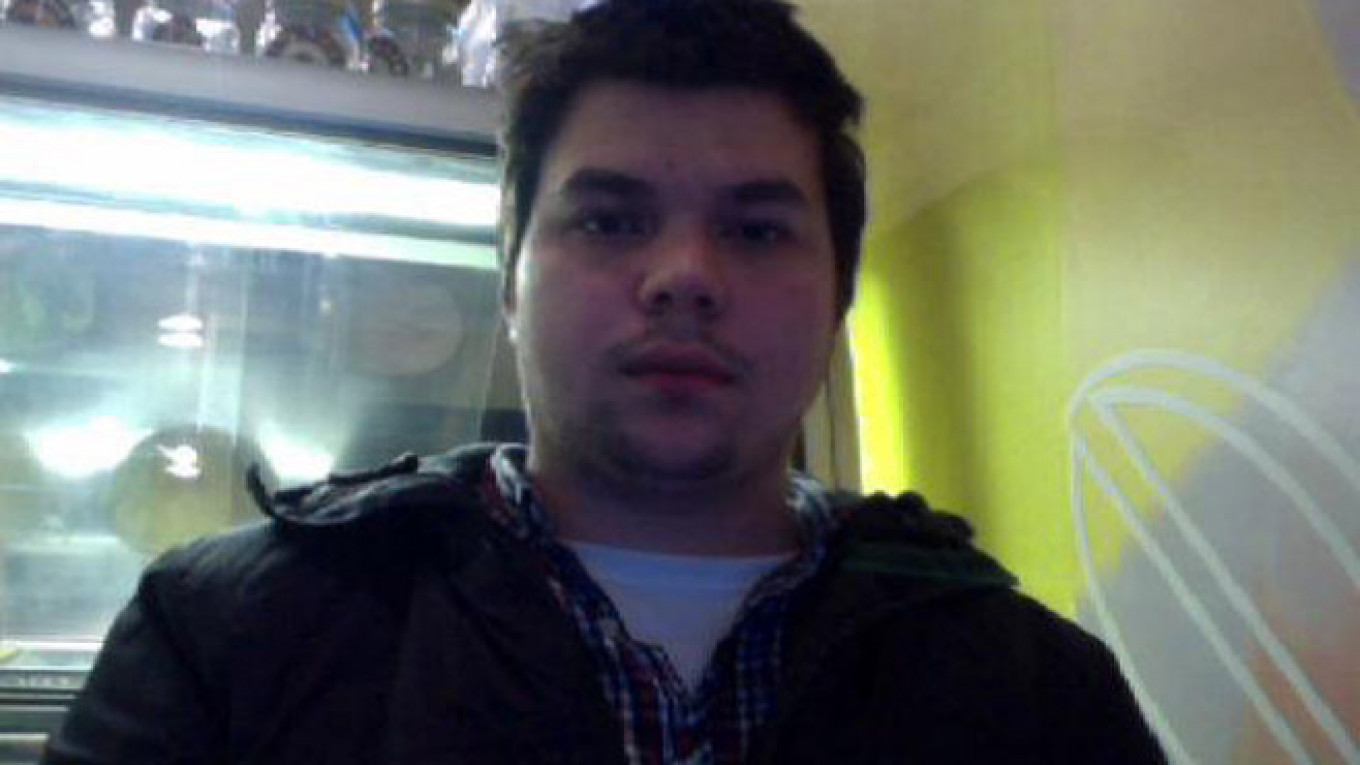A new suspect was detained Tuesday in connection with the 2012 anti-government protests in central Moscow’s Bolotnaya Ploshchad, bringing the total number of people arrested in connection with the so-called “Bolotnoye case” over the past 10 days to three.
Oleg Melnikov, 23, was detained in Moscow a week after Muscovite Dmitry Ishevsky and Petersburger Polina Strongina were also summoned by the Investigative Committee for their participation in the protests in central Moscow on May 6, 2012.
Melnikov's wife, Olga Korovina, told The Moscow Times her husband is accused of having toppled a portable toilet during clashes between protesters and police at the rally on the eve of President Vladimir Putin's inauguration.
Last month, the Investigative Committee released a statement on its website warning that "absolutely all organizers, participants of the mass riots and persons who used force against representatives of authority" on Bolotnaya Ploshchad would be brought to justice.
Charges were pressed against nearly 30 activists following the protests, 11 of whom were amnestied.
Coming two years after the protests took place, the latest detentions are meant to remind the opposition that the government's position on protest activist has not budged, despite its amnesty of certain defendants, said Alexei Makarkin, deputy director of the Moscow-based Center of Political Technologies think tank.
"The government wants to demonstrate to the opposition that the amnesty does not mean its general position about activities that disrupt order has changed," Makarkin told The Moscow Times on Tuesday.
Lawyer Valery Shukhardin, who defended some defendants in the case, said that the prosecution's detention of new suspects two years after the protests does not strike him as unusual from a legal perspective.
"The prosecution has to review all its material and this can take time," Shukhardin said. "There is nothing particularly unusual about a legal procedure that lasts this long. In some cases the statute of limitation can allow the prosecution to bring charges five to 10 years after an incident."
Lawyer Svetlana Sidorkina, who represented other defendants in the case, said the prosecution's two-year delay in identifying new defendants could serve its own interests.
"The prosecution wants to demonstrate that these were not mere protests but mass riots," Sidorkina said. "This case could be prosecuted forever. The longer it takes, the more it demonstrates the idea that these were mass riots with many people involved."
See also:
7 Bolotnaya Defendants Given Prison Terms, Navalny Detained Outside Court
Contact the author at g.tetraultfarber@imedia.ru
A Message from The Moscow Times:
Dear readers,
We are facing unprecedented challenges. Russia's Prosecutor General's Office has designated The Moscow Times as an "undesirable" organization, criminalizing our work and putting our staff at risk of prosecution. This follows our earlier unjust labeling as a "foreign agent."
These actions are direct attempts to silence independent journalism in Russia. The authorities claim our work "discredits the decisions of the Russian leadership." We see things differently: we strive to provide accurate, unbiased reporting on Russia.
We, the journalists of The Moscow Times, refuse to be silenced. But to continue our work, we need your help.
Your support, no matter how small, makes a world of difference. If you can, please support us monthly starting from just $2. It's quick to set up, and every contribution makes a significant impact.
By supporting The Moscow Times, you're defending open, independent journalism in the face of repression. Thank you for standing with us.
Remind me later.






